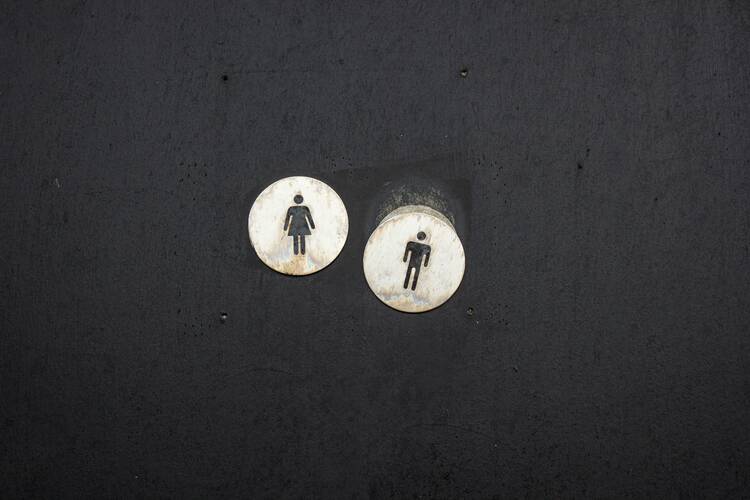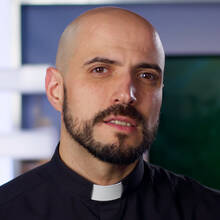A Reflection for Friday of the Nineteenth Week in Ordinary Time
Find today’s readings here.
So they are no longer two, but one flesh. (Mt 5:2)
Whenever we encounter the Pharisees in the New Testament, the guardians and arbiters of Jewish law, we know that a gauntlet is often being laid down for Jesus. But what is often overlooked is that their challenge serves not only to test Jesus’ Jewish orthodoxy but also to settle their own interpretive disputes over the law. Today’s dispute is about divorce.
In Jewish culture, it was widely accepted that a man could divorce his wife, but the grounds that permitted divorce were disputed. The debate centered on interpreting the Hebrew term “erwat dābār,” meaning some indecency or uncleanness. The Shammai school, scholars tell us, took a strict stance on divorce, limiting it to a woman’s sexual misconduct. In contrast, the Hillel school was more lenient, permitting divorce for even trivial issues, such as “if she spoiled a dish for him” or “if he found another more beautiful than she is.”
You may not be surprised to discover that this dispute reveals an even deeper dynamic—an ancient battle of the sexes. The debate over “erwat dābār” and divorce ultimately centers on a husband’s authority over his wife.
Jesus’ teachings on marriage in today’s Gospel subvert the power dynamic, emphasizing mutual freedom and responsibility. By declaring marriage makes two people “one flesh,” Jesus establishes the equality of both partners. He says, “Moses allowed you to divorce your wives, but from the beginning it was not so. I say to you, whoever divorces his wife (unless the marriage is unlawful) and marries another commits adultery.” (Mt 19:8-9). This statement underscores that the fidelity of both husband and wife is paramount in marriage; not safeguarding the man’s prerogative to divorce his wife if she no longer meets his needs or pleases him.
Jesus skillfully steers the conversation with the Pharisees to the heart of the matter: love and union ordained by God, as established in the Genesis account of creation, rather than focusing on its dissolution through divorce. Jesus shifts the focus from adhering to laws and regulations, focusing instead on God’s ideal and plan, emphasizing restoration and redemption over punishment and discipline for those who have strayed.
It is perhaps no coincidence that immediately after this passage, Jesus faces another misunderstanding, this time from his own disciples. When children are brought to Jesus for a blessing, the disciples turn them away. But Jesus rebukes them, “Let the children come to me, and do not prevent them; for the kingdom of heaven belongs to such as these” (Mt 19:14).
This juxtaposition highlights Jesus’ consistent attempts to challenge perceived norms and expectations in the ancient world, whether in matters of marriage and divorce or in valuing the worth and dignity of children. By embracing the vulnerable and marginalized, Jesus not only underscores the inclusive nature of God’s kingdom but also calls out the double standards of those who claim to follow God’s laws yet neglect to show compassion and love and treat all with equal care. How are we faring when it comes to the equal treatment and respect of women, children and vulnerable persons today?








